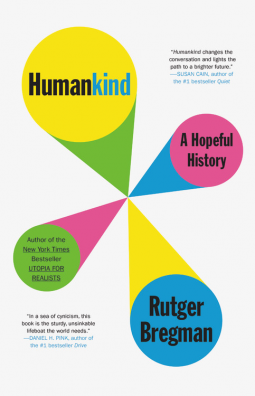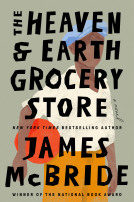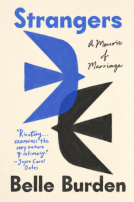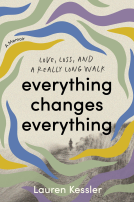
Humankind
A Hopeful History
by Rutger Bregman
This title was previously available on NetGalley and is now archived.
Send NetGalley books directly to your Kindle or Kindle app
1
To read on a Kindle or Kindle app, please add kindle@netgalley.com as an approved email address to receive files in your Amazon account. Click here for step-by-step instructions.
2
Also find your Kindle email address within your Amazon account, and enter it here.
Pub Date Jun 02 2020 | Archive Date Dec 31 2021
Talking about this book? Use #Humankind #NetGalley. More hashtag tips!
Description
From the author of the New York Times bestseller Utopia for Realists, a "bold" (Daniel H. Pink), "provocative" (Adam Grant) argument that our innate goodness and cooperation have been the greatest factors in humanity's success.
"I greatly enjoyed reading Humankind, a challenging book which made me see humanity from a fresh perspective. I warmly recommend it to others, and I trust it will stir a lot of fruitful discussions." —Yuval Noah Harari, author of the #1 bestseller Sapiens
THE #1 DUTCH BESTSELLER
If there is one belief that has united the left and the right, psychologists and philosophers, ancient thinkers and modern ones, it is the tacit assumption that humans are bad. It's a notion that drives newspaper headlines and guides the laws that shape our lives. From Machiavelli to Hobbes, Freud to Pinker, the roots of this belief have sunk deep into Western thought. Human beings, we're taught, are by nature selfish and governed primarily by self-interest.
But what if it isn't true? By providing a new historical perspective on the last 200,000 years of human history, internationally bestselling author Rutger Bregman sets out to prove that we are in fact hard-wired for kindness, geared toward cooperation rather than competition, and more inclined to trust rather than distrust one another. In fact this instinct has a firm evolutionary basis going back to the beginning of Homo sapiens.
This understanding, Bregman suggests, isn't merely optimistic—it's realistic. Moreover, it has huge implications for how society functions. When we think the worst of people, it brings out the worst in our politics and economics. But if we believe in the reality of humanity's kindness and altruism, it will form the foundation for achieving true change in society, a case that Bregman makes convincingly with his signature wit, refreshing frankness, and memorable storytelling.
Advance Praise
"Some books challenge our ideas. But Humankind challenges the very premises on which those ideas are based. Its bold, sweeping argument will make you rethink what you believe about society, democracy, and human nature itself. In a sea of cynicism, this book is the sturdy, unsinkable lifeboat the world needs." —Daniel H. Pink, #1 New York Times bestselling author of When and A Whole New Mind
"Rutger Bregman is one of the most provocative thinkers of our time... This book demolishes the cynical view that humans are inherently nasty and selfish, and paints a portrait of human nature that's not only more uplifting—it's also more accurate... by taking us on a guided tour of the past, he reveals how we can build a world with more givers than takers in the future." —Adam Grant, New York Times bestselling author of Give and Take and Originals
"I greatly enjoyed reading Humankind, a challenging book which made me see humanity from a fresh perspective. I warmly recommend it to others, and I trust it will stir a lot of fruitful discussions." —Yuval Noah Harari, #1 New York Times bestselling author of Sapiens and 21 Lessons for the 21st Century
"Rutger Bregman is one of my favorite thinkers. His latest book challenges our basic assumptions about human nature in a way that opens up a world of new possibilities. Humankind is simple, perceptive and powerful in the way that the best books and arguments are." —Andrew Yang, former US Presidential candidate and New York Times bestselling author of The War on Normal People
"Fascinating... Convincing... After cogently laying out the problem, Bregman turns to solutions... He describes businesses without bosses, schools in which teachers assume that students want to learn, and local governments in which citizens exert genuine power wisely... A powerful argument in favor of human virtue." —Kirkus (starred review)
Available Editions
| EDITION | Other Format |
| ISBN | 9780316418539 |
| PRICE | $32.50 (USD) |
| PAGES | 480 |
Links
Average rating from 9 members
Featured Reviews
 David W, Media/Journalist
David W, Media/Journalist
Rutger Bregman set himself a really high-barrier task in his book Humankind. He wants to prove that Man is actually not violent, or bellicose, but peaceful, helpful and kind. To do it, he went back to all those famous, landmark social science studies we’ve all grown up believing. They show unequivocally that Man is selfish, self-centered, violent and wallowing in it. Bregman shows them to be faulty, false, staged or just plain bogus. It makes for an eye-opening journey readers will not soon forget. And he does it with style.
Readers will recognize the studies, like the Stanley Milgram electric shock study and the Stanford Prison study. He even goes after the Kitty Genovese murder case and Lord of the Flies. Bregman goes back to research not just the study or the book, but the author and the author’s own notes.
The setup and the pitch
He uses an absolutely delightful structure. He describes the study, book or story, giving it all the credit it has always claimed, seemingly case closed, no argument possible. Then he starts researching, going back to original documents, and where possible, original participants. The story starts to crumble, and he ends up shaming the originators of the bogus findings. It makes a for a lively read of a very serious problem with Man: not violence, but fraud.
MSM at fault again
Man bites dog doesn’t sell as well as dog bites man. So newspapers focus on the sensational negatives, and don’t bother correcting stories when they prove false. Hollywood is all over sensationalism, mostly in the form of violence and gore. Everyone is always at war, always in a personal fight. Doesn’t matter if it’s Genghis Khan, Vikings or pilgrims. So viewers come to believe that they are accurate, that it is reality. That’s the way it always has been. That’s the way Man is.
Easter Island Cannibals?
For example, Bregman cites the Easter Island story. For centuries, it has been “known” that Easter Islanders raped the island and went to war with each other, finally eating each other as cannibals when the island could no longer support them all. It’s a classic that is in constant use to demonstrate Man’s selfish inhumanity to Man and total disregard for nature, not to mention the tragedy of the commons (which Bregman dismantles separately).
Only it never happened. Going back to the original ship captain’s logs, he shows that Easter Islanders were not just peaceful, they were thriving: joyously open and healthy. Not only did they not fight, they didn’t even know what weapons were. (The Dutch sailors showed them, mowing them down, then later enslaved them and left them with Plague.)
Shocking Stanley Milgram
In the famous Stanley Milgram experiment, volunteers electrocuted people, almost to death. It was supposedly the answer to why Nazis could exterminate people so readily. But Milgram hid the fact that more than half the subjects believed his shock machine was fake, so it didn’t matter how high a shock they administered. And it only came out much later that Milgram’s assistant continually harassed the subjects into shocking the victim. The results were therefore not definitive in any way. Or even valid. But the study lives on as a foundational document and seminal moment in social science.
Zimbardo’s Stanford Prison
Similarly, the Stanford Prison Study proved that jailers plus prisoners will always lead to violence, causing the entire justice system to apply stricter rules that caused (and continue to cause) totally unnecessary violence in prisons. The truth is the researcher forced the violence by making it a we/them setup (with him leading the we as the warden), forcing the guards to be aggressively obnoxious, and imposing odious arbitrary and humiliating rules on the prisoners to get them to rebel. Literally millions of Americans have suffered as a result of this landmark study.
Meanwhile, in modern prisons in Norway, prisoners and guards live, work and play together, help each other in tasks, and prisoners leave ready to rejoin society at a higher level. It costs the state less, and recidivism is a fraction of the American rate. The author of the Stanford study lived off it his entire life, rising to the highest levels in psychology, never admitting what his notes showed was bogus science.
Uncaring witnesses in NYC
In the infamous Kitty Genovese murder, a New York woman screamed for help as she was being stabbed to death, while 38 witnesses did nothing. She died in the hallway of her apartment building in Queens, alone. This story went global, and demonstrated how inhuman humans had become in big cities, reverting to savage animals who couldn’t bother even to lift a phone to help.
Bregman went back and found that two people had called the police immediately, before the second attack took place, but the police never sent anyone. They decided Genovese must be drunk (it was 3:30 am). And she didn’t die alone. A woman in her building immediately rushed to her and cradled her in her arms until she died. Lastly, two men stopped a robber carrying a tv out of a house in broad daylight shortly thereafter, disabling his truck so he couldn’t get away. These two good neighbors turned out to have caught the Genovese murderer, but that was never reported either. No, it was preferable to leave the sensational story of uncaring New Yorkers and an unsolved murder fill the media forever after. Cities breed uncaring, leering animals remains the takeaway, despite the facts.
William Golding loved hating
Even Lord of the Flies, which has long proven how beastly human children will be when left on their own, turns out to be bogus. This novel, read by every schoolchild in the country for 60 years, was written by William Golding, a man who professed Nazi sympathies, and had a worldview of violence and hatred. He made no pretense of it being scientific, but it has become key to the canon of innate violence in Man regardless. It fits our worldview, so it has become truth.
Bregman found a real case of Lord of the Flies, in which half a dozen kids on Tonga stole a boat and ended up shipwrecked on an island called ‘Ata in the 1960s. It took hard digging, but he tracked down the captain (now 90) of the boat that rescued them and got the whole story. After year, the boys were in excellent shape, finely toned, well organized, and now lifelong friends. Any time there was a disagreement on the island, the antagonists had to go to different ends to cool off, and had to shake hands and apologize when they came back. Wouldn’t make nearly as good a film as Lord of the Flies. And no one has ever heard of it outside Australia, where it has been forgotten. Meanwhile, Lord of the Flies is mandatory reading.
What really goes on — unreported
It’s not the common man, it’s his leaders that embody this evil nature. “Dictators and despots, governors and generals — they all too often resort to brute force to prevent scenarios that exist only in their own heads, on the assumption that the average joe is ruled by self-interest, just like them.” Bregman finds the farther one is from the front line, the easier it is to espouse violence.
There are lovely stories of how men find ways not to fight. Ninety percent of the muskets collected after the Battle of Gettysburg were loaded, often with two or more balls, as men used any excuse not to fire their weapons, pretending to be reloading rather than rushing into battle. At Christmas in 1914, Germans and Brits celebrated together, singing carols to each other from their trenches and then meeting to exchange gifts, play football, and carouse. To the point where the generals had to reinforce orders not to fraternize with the enemy. What enemy? “From Troy to Waterloo and from Korea to Vietnam, few armies have fought without the aid of intoxicants, and scholars now even think Paris might not have fallen in 1940 had the German army not been stoked on thirty-five million methamphetamine pills (a.k.a. crystal meth, a drug that can cause extreme aggression),” Bregman says.
As for guerilla organizations. he cites Erica Chenoweth who found that more than 50 percent of nonviolent campaigns were successful, as opposed to 26 percent of the militant ones. The primary reason, Chenoweth established, is that more people join nonviolent campaigns. On average over eleven times more. Turns out violence is way less appealing to ordinary people, even under duress.
Man the domesticated animal
Man is a domesticated animal, the finding of Richard Wrangham, from his excellent, groundbreaking book called the Goodness Paradox which I reviewed here: https://medium.com/the-straight-dope/homo-sapiens-domesticated-animal-6b233b91fdf0 As with other such beasts, from dogs to cattle, Man is smaller than his wild version the Neanderthal, and has much gentler features. Mostly, he is more peaceable and friendly than the wild species, just like with all domesticated animals. For us to have built this false collection of violent attributes, Bregman says, must simply be wrong.
Before modern times, tribes raised children together, partied with other tribes, shared food, and owned nothing. It was the rise of agriculture, the ownership of land and tools that started the route to wealth, inequality, protection of assets, selfishness and constant warring, Bregman says.
Et tu, Capitalism?
He extends the argument to capitalism, which he says was imposed from above. He says the Adam Smith version is wrong: “Now it turns out that this view is completely upside down. Our natural inclination is for solidarity, whereas the market is imposed from on high. Take the billions of dollars pumped in recent decades into frenzied efforts to turn healthcare into an artificial marketplace. Why? Because we have to be taught to be selfish.”
Aesop explained it right
Bregman’s quest here was recognized three thousand years ago by Aesop. One of his fables was about the sun and the wind. They spotted a man in a cloak, walking along. The wind bet the sun he could get the cloak off the man. He blew and blew as hard as he could, and with every gust, the man clutched his cloak to him even tighter. Then the sun took his turn. With the wind dying down, the sun came out, the birds went back to singing, and the air became welcoming and pleasant. The man took his cloak off himself.
Not much has changed in 3000 years. Co-operation works better than force, no matter what binge-tv series present. And that’s how people actually operate.
We owe Rutger Bregman a debt of thanks for unearthing the truth behind these long-held frauds, and for starting to clear the air about human nature. It’s a lovely, lively, uplifting and even scientifically important book.
David Wineberg
 Media/Journalist 526791
Media/Journalist 526791
This book was a great reminder that kindness really can change the world. Would recommend for those who need some hope and beauty to get them through the craziness going on in the world.
Readers who liked this book also liked:
James McBride
General Fiction (Adult), Historical Fiction, Literary Fiction
Annabelle Gurwitch
Biographies & Memoirs, Health, Mind & Body, Humor & Satire
Benjamin Reynaert
Arts & Photography, Home & Garden, Reference


















